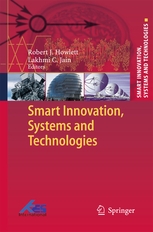Keynote Speakers
We are very pleased to have acquired the services of an excellent selection of keynote speakers for the symposium The speakers and the titles of their talks are shown below.
Associate Professor Dr. Smaranda Belciug
University of Craiova, RomaniaArtificial Intelligence in Cancer
More details ...
Associate Professor Bill Kapralos
Ontario Tech University, CanadaImmersive Technologies and intelligent avatars for medical education
More details ...
Professor Chee Peng Lim
Deakin University, AustraliaResearch and Innovation in Smart Technologies: Principles and Paradigms
More details ...
Professor Yoshimasa Masuda
Tokyo University of Science, Japan / Carnegie Mellon University, USADigital Strategy and Enterprise Architecture for Society 5.0 and Industry 4.0
More details ...
Professor Stefania Montani
University of Piemonte Orientale, ItalyMining and understanding medical processes: can we open the "black box"?
More details ...
Assoc. Prof. Dr. Smaranda Belciug
University of Craiova, RomaniaArtificial Intelligence in Cancer
Abstract:
The aim of this lecture is to establish a psychological connection with the audience, for each person to truly understand the vast implication of cancer in a person's life, whether her/his own health is involved, or a loved one's. Dealing with cancer implies physical, psychological, and financial issues. At first, we shall take a walk down history lane and see how cancer was seen in the past, followed by a recap from nowadays. Artificial Intelligence algorithms and a statistical analysis handbook, which needs to be performed anytime we are dealing with diagnosis, new clinical trials, new drugs, new oncological surgeries are presented also. Last, but not least, we shall paint a glimpse of the future, in which a trusted friend, Artificial Intelligence, steps in to lend us a helping hand.
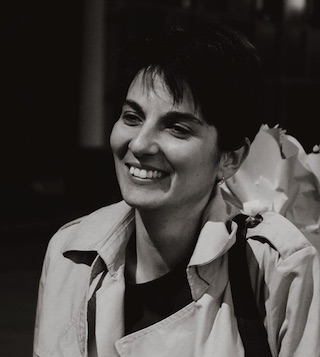
Biography:
Smaranda Belciug is an Associate Professor at the Department of Computer Science, Faculty of Sciences, University of Craiova and Data Scientist at the Molecular Tumor Board - Multidisciplinary Commission for Personalized Therapeutic Indication based on a Comprehensive Molecular (Genetic) Assessment. She is a member of the Editorial Board at Springer Nature-BMC Medical Informatics and Decision Making, at the Journal of Medical Artificial Intelligence, and at the International Journals of Computers in Healthcare.
Her main research interests include Artificial Intelligence applied in the Healthcare system and Statistics. She is the authors of the two monographs "Artificial Intelligence in Cancer: diagnostic to tailored treatment", Elsevier, 2020, and "Intelligent Decision Support Systems - A journey to Smarter Healthcare", Springer 2020.
She is an enthusiastic partisan of the multidisciplinary approach in scientific studies, and all her research is driven by this reason. This has been recognized at multiple levels, from the wide variety of nature of the journals she has published into to the variety of journals and conferences that she reviews for.
Associate Professor Bill Kapralos
Ontario Tech University, CanadaImmersive Technologies and intelligent avatars for medical education
Abstract:
The technologies of virtual reality (VR), augmented reality (AR), serious games, virtual worlds and social networks have become collectively known as immersive technologies and are able to engage users of all ages. Central to many interactive digital experiences are virtual characters known as avatars, that is, digital representations of the self that enable individuals to interact within a virtual environment. By adopting personalized and intelligent avatars, users are able to interact with each other in virtual worlds and foster cohesive social relations that can lead to changes in emotions and cognitive function. The continuous increase in computational processing power and accompanying decrease in the size of electronic components has led to the decreasing cost and rising availability of consumer-level immersive technologies that have helped advance the adoption of immersive technologies in recent years. Advances in areas such as graphics, artificial intelligence (AI), sensors and speech synthesis have led to increases in the levels of fidelity and have enabled increasingly more natural interactions with avatars. Within the healthcare field, immersive technologies and VR/AR in particular, are not so much technologies of the future but rather, of the present where researchers, medical professionals and educators are finding innovative ways to leverage immersive technologies and transform both healthcare teaching and practice; this has only accelerated given the move to remote learning to facilitate COVID-19 shutdowns. In this presentation a brief overview of the application of immersive technologies (AR, VR, and serious games) and intelligent avatars (with a particular focus on the detection and expression of emotions), in medical education will be provided. Emphasis will be placed on the benefits and limitations of existing technologies, what currently can and cannot be, and various open problems that must be addressed before the application of immersive technologies becomes more widespread in medical education.
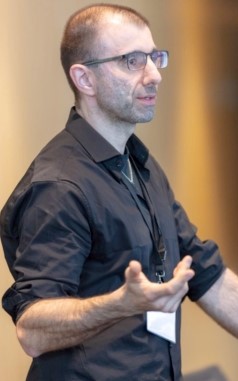
Biography:
Bill Kapralos is an Associate Professor within the maxSIMhealth Laboratory at Ontario Tech University and an Honourable Guest Professor at Shizuoka University (Hamamatsu, Japan). He is also the Technical Lead of the Collaborative Human Immersive Interaction Laboratory (CHISIL), Sunnybrook Health Sciences Centre in Toronto. His current research interests include: immersive technologies, serious gaming, multi-modal virtual environments/simulation/reality, the perception of auditory events, and 3D (spatial) sound generation. With funding from various government and industry sources, he has led several large interdisciplinary and international virtual simulation/serious gaming research projects. He was recently awarded an Ontario Tech University Research Excellence Chair and a Greek Diaspora Fellowship (sponsored by the Stavros Niarchos Foundation). He is a past recipient of an Australian Government 2018 Endeavour Executive Fellowship to conduct research in Australia, a past recipient of a Natural Sciences and Engineering Research Council of Canada (NSERC) and Japan Society for the Promotion of Science (JSPS) Fellowship, a past recipient of an IBM CAS Faculty Award, and a past co-recipient of a Google Faculty Award
Professor Chee Peng Lim
Deakin University, AustraliaResearch and Innovation in Smart Technologies: Principles and Paradigms
Abstract:
Advances in digital and smart technologies have transformed many aspects of our daily activities. Over the years, researchers and practitioners have successfully created and implemented a variety of smart technologies to solve dynamic and complex tasks in different domains. In this talk, several computational intelligence (CI) principles and paradigms for designing and developing smart systems, e.g., neural computing, fuzzy computing, and evolutionary computing, will be explained. Application of the resulting CI-powered smart systems to undertaking data-based learning and decision support tasks will be demonstrated, which include real-world healthcare and industrial problems. Implications of smart technologies for advancing our digital futures in the era of Industry 4.0 and beyond will be discussed.
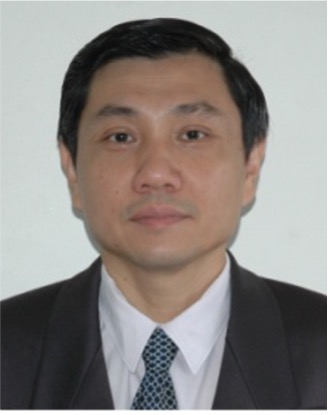
Biography:
Chee Peng Lim received his Ph.D. degree from the University of Sheffield, UK, in 1997. His research focuses on the design and development of computational intelligence-based systems for pattern classification, data analytics, decision support, and optimisation, with application to medical prognosis and diagnosis, fault detection and classification, as well as manufacturing process optimisation. He has published over 500 technical papers in journals, conference proceedings, and books, and received 8 best paper awards in international conferences. His research has received the support of several prestigious fellowships for fostering international collaboration, which include the Australia-India Senior Visiting Fellowship (by Australian Academy of Science), Australia-Japan Emerging Research Leaders Exchange Program (by Australian Academy of Technological Sciences and Engineering), Commonwealth Fellowship (at University of Cambridge, UK), Fulbright Fellowship (at University of California, Berkeley, USA), and Visiting Scientists Program of the Office of Naval Research Global (at Harvard University and Stanford University, USA). Together with research partners, a number of award-winning smart software systems have been developed for real-world applications, viz., Innovation and New Product Exposition Show (Gold Medal), USA; British Innovation Show (Gold and Special Award: Double Gold of the International Invention of the Year), UK, and the Geneva International Exhibition of Inventions (Gold Medal), Switzerland.
Professor Yoshimasa Masuda
Tokyo University of Science, Japan / Carnegie Mellon University, USADigital Strategy and Enterprise Architecture for Society 5.0 and Industry 4.0
Abstract:
Information societies and Enterprises face crucial challenges currently and Society 5.0 can contribute to a supersmart society, while Industry 4.0 becomes important in the manufacturing industry. The development of new business models is promoted with digital platforms and architectures for Society 5.0 and Industry 4.0. Therefore, the adaptive integrated digital architecture framework (AIDAF) for Society 5.0 and Industry 4.0 is expected to promote, design, and implement the digital platforms in many industries from now on. In this talk, first, I introduce that various energy management systems and related smart energy digital platforms are designed in an alignment to digital IT strategy for sharing economy toward Society 5.0, with the AIDAF framework for Design Thinking Approach with Risk Management, that will lead to the Tokyo Smart Energy Architecture Vision. Besides, I brief how to apply the AIDAF for enabling Industry 4.0 in healthcare industry, covering the related digital platforms and robotics. Last, I introduce the AIDAF with Human computer interaction (HCI) - artificial intelligence (AI) digital healthcare platforms architected to improve the healthcare status of patients with lifestyle-related diseases such as diabetes, and osteoporosis, as the latest trend.
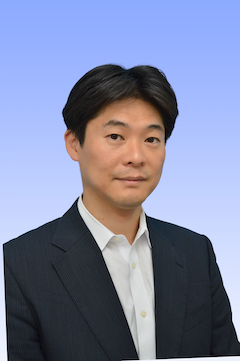
Biography:
Yoshimasa Masuda is Professor at School of Management in Tokyo University of Science Teaching Faculty, Instructor at Carnegie Mellon University - ISR (Institute for Software Research) and Graduate school of Keio University (specially appointed), with Sr. role in NTT Data Institute of Management Consulting. He has more than 14 years' experience in enterprise in many industries. He earned a Ph.D. degree in Keio University. He had experienced many global projects, international assignments in IBM. He started up the global enterprise architecture in Global Pharmaceutical company and worked as Sr. IT Director in Global Robotics company in 2019, and started the "Global Digital Strategy Consulting" in NTT Data group, Institute of Management Consulting as Senior Management. He completed the Executive Education (MoT) in MIT in 2011, and he has joined Carnegie Mellon University since 2018. He was selected as "Distinguished Member" of AIS (Association for Information Systems) in 2021. His research interests are enterprise architecture in Digital era, digital healthcare, IT management. Yoshimasa Masuda is author of the successful AIDAF - Adaptive Integrated Digital Architecture Framework and the book Enterprise Architecture for Global Companies in a Digital IT Era, from Springer Nature. He got the "Global Achievement Award - Innovative Solutions Award 2021" from worldwide ISACA, by establishing the AIDAF framework.
Professor Stefania Montani
University of Piemonte Orientale, ItalyMining and understanding medical processes: can we open the "black box"?
Abstract:
Healthcare organizations log enormous quantities of data in their information systems, about the diagnostic or therapeutic activities that are executed to manage or prevent diseases. In particular, the sequence of activities executed to care a single patient is called a trace. The analysis of patient traces by means of machine learning techniques allows medical experts and administrators to better understand the actual processes implemented at the organization, identifying flaws and optimizing the quality of the service they offer.
In this presentation, we will focus on process mining from patient traces, and on deep learning trace classification: both areas rely on strong machine learning tehcniques, which, however, suffer from a major drawback, i.e., their "black box" nature. We will discuss this issue, and propose possible approaches that can provide more transparency to the algorithmic output.



